News and Announcements
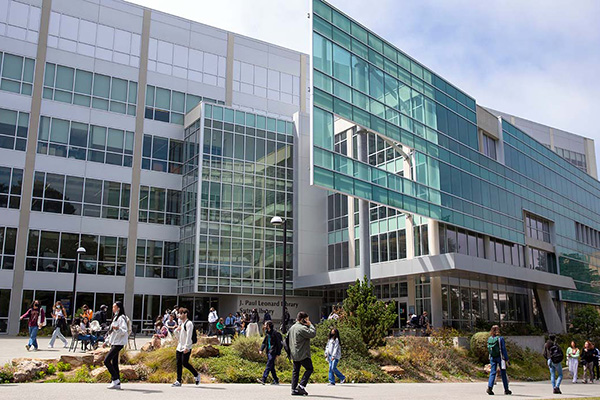
Walking across the SF State campus, you’ll notice a lot of names: buildings and classrooms like the J. Paul Leonard Library, Mary Ward Hall, Hensill Hall and more. But who were Leonard, Ward and the rest? What are their SF State stories? In honor of the University’s 125th anniversary, SF State News is sharing the story behind some of these historical Gators and their continuing campus legacies.
Burk Hall
Frederic Lister Burk is the man who started it all as the founding president of the San Francisco State Normal School (SF State’s first name). The school was originally a teacher-training institution, so it’s fitting that Burk Hall is now home to the Graduate School of Education. Burk chose SF State’s motto Experientia docet, “experience teaches,” and promoted individualized instruction, believing a strict “lockstep” curriculum stifled creativity and deterred individuality. “[T]hereafter no lessons would be prescribed, each would pursue his own lessons and proceed at his own rate,” he later recalled. “The result was electrifying.”
J. Paul Leonard Library
Every Gator knows the library. It’s where students go to work, meet study groups or grab caffeine at Peet’s before class. The SF State library is named for the University’s fifth president, J. Paul Leonard, who served from 1945 to 1957 and helped lead the building of the current campus. Appointed after World War II, Leonard wanted to reshape instructional programs to better serve the ever-growing communities of the Bay Area. He worked with faculty to develop education that would have classes in social and civic understanding, life values and an evolving world. The library was named in his honor in 1977.
Mary Park Hall and Mary Ward Hall
These traditional undergraduate residence halls honor two women who greatly impacted the University and its students.
Mary Park was a fixture in the SF State community. Known to students as “Mother Mary,” she was a food server and custodian for 10 years and supervising custodian for the residence halls for 20. When she retired in 1981, the University renamed a residence hall after her, making it the only SFSU building (and the first in the CSU system) named after a staff member at the time.
Alumna Mary Ward graduated from the San Francisco Normal School in 1906 with a degree in Math. She was an early student of President Burk, who appointed her as the school’s supervisor of practice teaching arithmetic. From 1916 to her retirement in 1951, she was the only dean of women to serve the University. During the summer of 1927, she served as acting president until the third University president was appointed. Her legacy included advocacy for underserved populations and immigrants, lobbying for a living wage for female students needing employment and more.
Thornton Hall and Hensill Hall
Inside these buildings, students carry on the scientific legacy of the buildings’ namesakes, two former deans of the School of Natural Science (now known as the College of Science & Engineering).
Robert Ambrose Thornton was the first dean of San Francisco State’s School of Natural Science in 1964 and the first Black-Native American (Cherokee) faculty member to become a dean of science at the University. He joined SF State in 1956 as a Physics professor with an established career as a scientist, educator and administrator. In 1944, he wrote Albert Einstein a letter about the philosophical side of science, which led to a nine-year correspondence and several in-person visits.
John S. Hensill first came to SF State as a Biology professor in 1947. He later became chairman of the department and was dean of the School of Natural Science from 1969 to 1975. He oversaw the rapid expansion of the school and completion of the physical and life science buildings (now Thornton and Hensill Halls, respectively). He considered the naming of Hensill Hall to be a great honor and was known to give the building a salute when he walked by.
Cox Stadium
These days, many Gator stories start at Cox Stadium because it’s often the location of the entering class photo and pinning ceremony. The stadium was dedicated to Coach Dave Cox, who spent $7,500 of his own money to get good lighting and expand the facilities. On the old campus at Haight and Buchanan streets, Cox invited students to make suggestions for a dream stadium and gymnasium and then he forwarded their responses to the California State Architect. Cox was the first head coach and director of men’s athletics in the 1930s. His legacy includes forming two basketball teams, a track squad, a swim team and a football team. In 1931, the rise of athletics energized students to vote for SF State’s mascot the Golden Gater (Gator), now known as the beloved Alli Gator.
Don Nasser Family Plaza
Don Nasser Family Plaza is home of SF State’s main gymnasium, affectionately known as “The Swamp.” Nasser (B.A., ’63), an alumnus and SF State Foundation member, was a major donor for the gym’s renovation, which was completed in 2014. After earning a degree in Business/Real Estate, Nasser worked in banking for two decades and served as president of Bay Properties Inc. He also managed the famous Castro Theatre, which belonged to his family.
Mashouf Wellness Center
The Mashouf Wellness Center opened in 2017. Its namesake, alumnus Manny Mashouf (B.A., ’66) — founder of the women’s fashion brand bebe — was a major donor for the project. The 118,700-square-foot facility has a climbing wall, indoor jogging track, fitness and weight areas, pool and more.
Jack Adams
Jack Adams Hall, a large auditorium-style space, is at the top of SFSU’s Student Center. A Virginia native, Adams joined SF State in 1969 as the properties manager for the School of Creative Arts. He became assistant director of the student union in 1982, serving until he had to resign as his health declined. Adams became a “face” of the epidemic and inspired the creation of the “all-campus” AIDS coordinating committee made up of students, faculty, staff and administrators who created pioneering curriculum responding to the AIDS epidemic launched in fall 1986. During this time, Adams’ SFSU colleagues supported him by bringing meals and providing company. Adams died in November of 1992 at the age of 47 due to AIDS-related complications. A year later, the Student Union Governing Board passed a resolution to rename the room Jack Adams in honor of his dedication to backing student causes and connection with Associated Students. Since then, a scholarship has also been inaugurated in his honor.
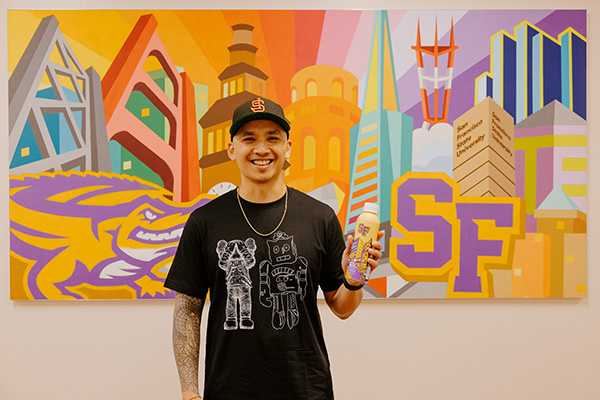
For the third year in a row, SF State welcomed the campus community to a new academic year with colorful, reusable aluminum water bottles — a subtle way of signaling that single-use plastic bottles are not welcome on campus. This year, for the first time, an alumnus is responsible for the artwork on the water bottle.
“Hopefully, people will want to hang on to these bottles because of the dymanic design,” said SF State Associate Vice President of Alumni Relations and University Engagement Nicole Lange. “And it’s a bonus that the design was created by an alumnus.”
Lange’s responsible for the initial partnership with PATH, the company behind these customizable water bottles. She also approached artist Jordan Herren (B.A., ’13) about the project. Herren works in marketing but creates murals and paintings in his spare time. His work can be found across San Francisco, including at iconic places like the Ferry Building, the SF State campus and his high school in Daly City. His signature style is energetic and optimistic, he says, and it’s in this style that he captured SF State’s skyline for the water bottle.
This isn’t the first time his art was featured at the University. In 2022, he created a colorful painting of the San Francisco skyline during a staff appreciation event to welcome back employees following quarantine. It hangs on the first floor of the Administration building.
Herren’s been making art since he was a kid but pursued a more practical path at SF State. He studied Marketing, the creative side of business, he says. Despite having a lot of “love for SF State,” he admits he wasn’t the best student. “The drive was there, though.” His degree has ultimately served him well — he now works in marketing at PG&E. During the pandemic, he tried to work full time as an artist. With a baby on the way, he appreciates the stability of his current role, he says.
The San Francisco native is happy to have side projects, especially for his alma mater. “Something about SF State resonates with me. It’s a very outspoken, free-speech school. I feel like that carries the spirit of someone from San Francisco,” he said. “I take pride in being a Gator.”
The reusable water bottle is part of SF State’s overall zero-waste goal, says SF State Director of Sustainability and Energy Caitlin Steele. “This is an ambitious long-term goal, but every step counts,” she said. “We hope by giving students free and reusable water bottles that they will use them throughout the year. We hope this helps students save money by not buying disposable water bottles and helps us generate less waste on campus.”
Part of that zero-waste goal means phasing out the sale of single-use plastic water bottles, which the University has accomplished. To make that transition easier, the University handed out 25,000 SF State water bottles and plans to distribute 25,000 more over the next two years.
Since 2019, the University has not only cut plastic bottle sales entirely but decreased the number of reusable bottles sold. In March of 2019, SF State sold 4,205 plastic bottles. In March of 2024, the University sold 755 aluminum bottles and no plastic bottles. The data show that the aluminum water bottles are most likely getting reused, according to the University.
This is just one of the many sustainability initiatives underway at SF State. Curious about the University’s ongoing sustainability efforts? Read SF State’s recently released Climate Action Plan.
Photo by Kevin Perez
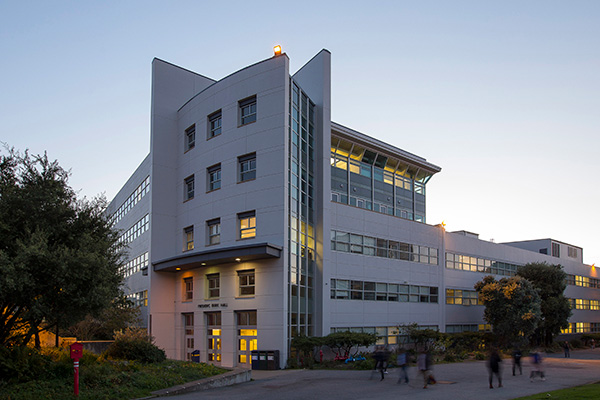
The SFSU Educational Administration and Leadership program, in partnership with the San Francisco Unified School District (SFUSD), has received funding to pay the full tuition of 44 future school administrators from under-represented backgrounds. SFSU is the only Preliminary Administrative Services Credential (PASC) program in the CSU system selected for the grant, part of the California Commission on Teacher Credentialing’s Diverse Education Leaders Pipeline Initiative.
The initiative aims to prepare diverse and culturally responsive administrators in transitional kindergarten and K – 12 to improve student outcomes and meet the needs of California’s education workforce. Students in the program will receive a PASC and a Master of Arts in Educational Administration and Leadership from SFSU.
Professor Irina Okhremtchouk and Assistant Professor Vince Matthews are leading the grant partnership efforts in coordination with SFUSD.
Engineering Associate Professor Yiyi Wang, Engineering Assistant Professor Zhuwei Qin and Special Education Associate Professor Mary Requa have been awarded a National Science Foundation grant. It is titled “Supporting Neurodiverse Students in Engineering Teamwork through an AI- Driven Platform.” This is a three-year grant worth $399,979.
This project uses a two-pronged approach to ameliorate the social-emotional and sensory challenges for neurodiverse students participating in classroom teamwork. First, they will plan to develop a prototype of an artificial intelligence-driven teamwork platform for coaching students’ executive function and self-regulation and assess its impacts on students. Second, they will investigate its feasibility to assist instructors providing neurodiverse-focused mentorship while building a community of practice. The study will be implemented among the social-economically diverse student population in the School of Engineering.
Join the campus ReUse listserv and recycle some of those office items taking up space or no longer needed, so another department can benefit. It’s budget-friendly and sustainable! To join the listserv directly, email reuse-request@lists.sfsu.edu. To find all the interesting listservs across campus, please visit the SF State distribution list website.
With 2024 – 2025 underway, the Kinesiology Department’s Fit Plus Wellness Program is ready to serve you. Come and jump back on the saddle in this wellness program for faculty and staff. The program starts Tuesday, Sept. 3, and enrollment is open.
For more information, please visit the Fit Plus page on the Department of Kinesiology website.
Encourage your students to study abroad next semester! Benefits include the same tuition as at SFSU, a cheaper cost of living, financial aid, earning credits for SFSU, and going abroad for major, minor, language and general education classes.
Applications to study abroad in spring 2025 are due Sunday, Sept. 15. Applications to study abroad in summer 2025, fall 2025 and academic year 2025 – 2026 are due Feb. 15.
Speak with international students and study-abroad alumni the International Education Exchange Council Study Abroad Fair on Tuesday, Sept. 3 – Wednesday, Sept. 4, 11 a.m. – 2 p.m., on Malcolm X Plaza.
Please encourage your students to attend and follow SF State Abroad on Instagram. Students can also explore their options on the SF State Abroad Database. For questions, please visit the SF State Abroad website or email the Study Abroad Office at studyabroad@sfsu.edu. Advising is available in-person and via Zoom. The Study Abroad Office is in Building C of the Village at Centennial Square, next to U.S. Bank.
The “Comfort Women” Research and Creative Scholarship Small Grants Program for SF State faculty and students provides awards of up to $6,000 to faculty and $4,000 to students. The awards fund research and creative scholarship projects that increase awareness of the historical and contemporary significance of “comfort women” and engage the public in discourse about the experiences and the remembrance of “comfort women.”
The proposal deadline is Friday, Sept. 13. Please visit the College of Ethnic Studies website for more information and to view the call for proposals.
The online University Calendar is a great place to find and share information about a variety of things to do on campus. It includes student organization events, guest lectures, art and cultural productions, sporting events and more!
If you have an event you would like to share, please submit by completing the online form. For questions, please email the Office of Strategic Marketing and Communications at marcomm@sfsu.edu.
Publication of CampusMemo will continue weekly through early December. The deadline to submit an item is 5 p.m. Tuesdays preceding publication. A later date may be selected as well.
To submit an item, please complete the form via Qualtrics.
For questions, please email the Office of Strategic Marketing and Communications at marcomm@sfsu.edu.
The SF State Academic Senate will meet Tuesday, Sept. 3, 2 – 5 p.m., in Seven Hills Conference Center for its first meeting of the academic year.
Agenda:
- Recommendation from the Executive Committee: Loss of Confidence in the CSU Chancellor and Board of Trustees Ability to Effectively Consult with Faculty On Changes in CSU Curricula, which was tabled at the final plenary of last year and will be brought back in first reading.
- Recommendation from the Campus Curriculum Committee: Substantive decrease (21 units to 15 units), minor in Philosophy, in first reading.
- Academic Senate will hear a formal presentation from Jamillah Moore, vice president of Student Affairs & Enrollment Management, and David Schachman, director of Business Operations: Children’s Campus update.
View the full agenda, meeting materials and minutes on the Academic Senate website.
The Center for Equity and Excellence in Teaching and Learning (CEETL) organizes meetups for faculty to check-in briefly about their writing and to work quietly on individual writing projects.
The meetups are scheduled for every first and third Tuesday, 1 – 3 p.m., and every second and fourth Friday, 1 – 3 p.m. Tuesday sessions will be hybrid; join virtually or come to Library 242. Snacks will be provided. Friday sessions are on Zoom. The first session is Tuesday, Sept. 3, 1 p.m. in Library 242.
Curious about generative artificial intelligence (AI), but not sure where to start? Join the Academic Technology team for a hands-on workshop covering the essentials of generative AI chatbots like ChatGPT and Microsoft Copilot, including how to effectively and responsibly use them, and identify and discuss the best applications for your academic and administrative needs. It will be held Tuesday, Sept. 4, 11 a.m. – noon, via Zoom.
To honor the lives of SF State students, faculty and staff who have passed away in the past year, the Division of Student Life will host a Day of Remembrance on Tuesday, Sept. 10, 11:30 a.m. – 1:30 p.m. at the Garden of Remembrance. This gathering provides a space for reflection, remembrance and support as we come together as a community.
All members of the campus community members are invited to share stories, honor the lives of those lost and find solace in each other’s company.
The Institute for Civic and Community Engagement (ICCE)’s Fall 2024 Service & Internship Fair is coming up Tuesday, Sept. 10, 11 a.m. – 1:30 p.m., on the Quad. The event is an opportunity for students to explore paths that align with their passions and goals.
During the fair students will:
- Discover opportunities: Meet a variety of organizations offering internships and service positions that match students’ interests and goals.
- Network: Connect with professionals, community leaders and other students who are passionate about making a difference.
- Grow: Learn about different fields, build skills and find chances to apply what they’ve learned in real-world situations.
The Center for Equity and Excellence in Teaching and Learning (CEETL) invites the campus community to a campus art walk on Wednesday, Sept. 11, noon – 1 p.m. This is its first “We Wednesday” event of the academic year.
The tour will meet at Peet’s at noon. A student tour guide will lead participants on an exploration of the campus’ vibrant murals and art.
The All-University Committee on International Programs (AUCIP) and the College of Professional & Global Education invites all faculty, staff and administrators to an International Coffee Hour on Thursday, Sept. 12, noon – 1 p.m., in the Library Teaching and Learning Commons (Library 286). The event aims to connect international and internationally minded faculty, administrators and staff and provide a forum for discussions around international programs and global issues.
This event occurs twice each semester and is organized by AUCIP, which is an Academic Senate committee. The College of Professional & Global Education will provide refreshments.
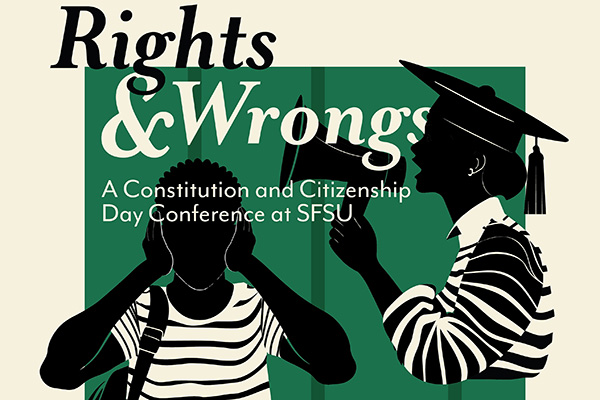
SF State has a proud tradition of organizing conferences for Constitution and Citizenship Day, a national holiday that commemorates the signing of the U.S. Constitution in 1787. The 2024 conference takes place Monday, Sept. 16 – Tuesday, Sept. 17. It provides multiple opportunities to reflect critically on the past, present and future of constitutional rights, freedoms, citizenship, democracy, equality and justice.
The campus community is invited to this admission-free event.
Keynote speakers:
- Khiara M. Bridges: “Race and the Roberts Court: Dobbs v. Jackson Women’s Health Organization”
- Rana Marie Jaleel: “Academic Freedom and Diversity Complications”
Visit the Constitution Day page for the full schedule and more information.
The University Police Department (UPD) hosts its in-person Citizens’ Academy this semester. It is a 10-week program taking place every Wednesday, 4 – 7 p.m., beginning Sept. 18. The application deadline is Friday, Sept. 13.
Please visit the UPD website for more information and to apply.
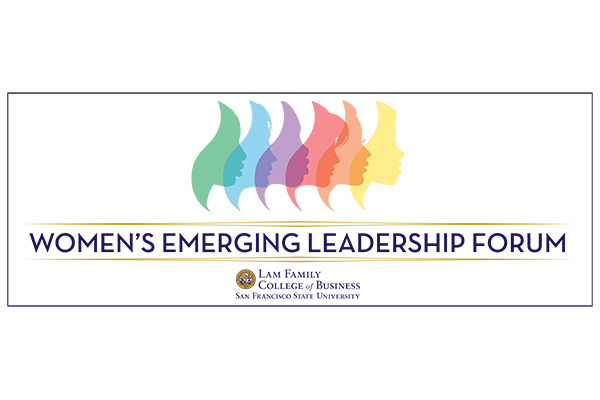
The Women’s Emerging Leadership Forum (WELF) celebrates its 10th anniversary on Friday, Oct. 25, at LinkedIn headquarters, 222 Second St., in San Francisco. This event is hosted by the Lam-Larsen Community Engagement Initiative in the Lam Family College of Business. The them of this year’s forum is “Unlock Growth Through Lifelong Learning.”
Save 60% off the SF State faculty/staff ticket price until Friday, Sept. 6. Visit the Lam Family College of Business website to review the agenda and distinguished speaker biographies, and to buy tickets.
The SF State Safe Zone Ally program is looking for staff, faculty and administrators to become allies for the campus LGBTQ+ community. The Safe Zone Ally program’s mission is to foster a welcoming, inclusive, and equitable campus environment by building a support network for people of all gender and sexual identities.
Safe Zone allies are active and visible volunteers who are open to talking to members of the LGBTQ+ community in a confidential and supportive environment. To become a Safe Zone ally, volunteers must complete a Safe Zone Ally training. Several Safe Zone Ally trainings are offered throughout the year. The next training will be held virtually in two parts (participants must be able to attend both): Friday, Oct. 25, 1 – 4 p.m., and Friday, Nov. 1, 1 – 4 p.m.
For details and to register, please RVSP via email to Rick Nizzardini. Preregistration is required.
SF State Spotlight
On June 27, Professor of Anthropology Cynthia Wilczak was quoted in the National Geographic, giving her opinion on a recent publication of the skeletal markers identified in ancient Egyptian scribes. She says the new research is “intriguing, but we are still a long way from identifying a ‘scribe-specific’ pattern of skeletal changes” in ancient Egyptian bones.
Students from Journalism and Broadcast and Electronic Communication Arts (BECA) share stories from around the community in a new special report on KQED-FM.
The report, a one-hour special titled “The Future of the Bay,” reports on harassment on Bay Area Rapid Transit, thrifting culture, the hyphy movement, artificial-intelligence music, women in surfing, Oakland sports and more. The special aired Aug. 31.
The project was produced in spring 2024 in Journalism/BECA 480: “Audio Journalism,” taught by Journalism Assistant Professor Josh Davis. Journalism Department alumni Leticia Luna (B.A., ’24) and Sebastian Mino-Bucheli (B.A., ’21) produced the project, along with Davis.
Reporting, audio production and editing for all stories were done by SFSU students: Tam Vu, Zackery Stehr, Johnny Conterez, Jessi L. Holland, Grae Zimmerman, Nicolas Frederik Adserballe, Frederik Steinfath, Sydney Williams, Giovanna Montoya, David Ye, Victor Harris Jr., Jason Hernandez, Ahbree Innis, Gabriela Calvillo Alvarez, Steven Rissotto and Andrew Fogel.
Christopher Koenig, professor in Communication Studies, was a visiting scholar at the Nuffield Department of Primary Care Health Sciences at the University of Oxford during spring 2024.
He worked with fellow conversation analyst Rebecca Barnes on the Optimizing Structured Medication Reviews, a study funded by the UK National Institute for Health Research (NIHR) and sponsored by the University of Oxford to examine the challenges pharmacists face when conducting structured medication reviews (SMRs) for clients with multiple long-term conditions and who take multiple medications. The project will be an ongoing collaboration building on Dr. Koenig’s research on how clinicians refer to treatment during primary care clinical encounters. While at Oxford, Koenig shared his research in several presentations for the Health Experiences and Departmental research groups and led several data sessions for inter-departmental research groups.
Aritree Samanta, associate professor in the School of the Environment, and Elizabeth McGraw, an undergraduate student majoring in Environmental Studies and minoring in Political Science, published a co-authored, peer-reviewed chapter in the upcoming “Handbook on Diversity, Equity and Inclusion in Public Administration” (Edward Elgar Publishing, edited by Meghna Sabharwal, Sean McCandless and Shilpa Viswanath). The book dives deep into the heart of Diversity, Equity and Inclusion (DEI) issues across individual, organizational and societal levels.
In the chapter titled “Examining social equity in soil and water conservation governance in the United States,” Samanta and McGraw examine soil and water conservation districts in the U.S. Using the lens of distributional equity, Samanta and McGraw examine the role that the districts play in soil and water conservation agenda-setting in the rural areas affecting distribution of environmental and soil conservation resources for diverse rural groups such as women, Black, Latinx/e, Indigenous and immigrant farmers.
International Relations Professor Amy Skonieczny and Steven Hook have authored the newest edition of the popular textbook “U.S. Foreign Policy: The Paradox of World Power” (Sage Publications).
The book underscores that the same aspects of American government and society that propelled the United States to global primacy have also hampered its orderly and successful conduct of foreign policy. This paradox challenges U.S. leaders to overcome threats to America's world power in the face of fast-moving global developments and political upheavals at home. “U.S. Foreign Policy” explores this paradox, identifies its key sources and manifestations, and considers its future implications.
In the book, Skonieczny and Hook help students learn how to think critically about these cascading developments and the link between the process and the conduct of U.S. foreign policy.
International Relations Professor Andrei Tsygankov’s new book, “Russian Westernizers and Change in International Relations: The Promised West” (Routledge University Press), summarizes the Westernizing trend in Russian thought from the early 19th century to the present day.
This book looks at Russian thinkers and politicians who have considered Western/European civilization to be superior to others and who have drawn the conclusion that Russia consequently ought to align itself with the West, rather than preserving certain traditional Russian values — and that not doing so is an impediment to political, social and economic evolution. Within this trend of thought, Tsygankov identifies four schools — Christian Westernizers, economic liberals, political liberals and social state supporters — and explores examples of each. He compares Russian thinkers from different periods, finding contrasts and similarities within their political and historical settings and assessing their responses to their unique circumstances. He analyzes Russian Westernizers’ self‑definition and ideas of national freedom relative to those of Western nations, exploring how the West’s definition of values and institutions has changed over time. He shows how Western historical developments affected waves of Westernization and pro‑Western thinking inside Russia, arguing the importance of this being grounded in national state‑building priorities.
The growing complexity of global relations, the declining global influence of the West, and the war in Ukraine present Russian Westernizers with new questions and challenges, and this book assesses the resulting implications.
SF State has a long tradition of excellence in interdisciplinary education. Professor Tanya Augsburg in the School of Liberal Studies recently contributed “Interdisciplinarians” and “Transdisciplinarians,” two article entries in the groundbreaking “Elgar Encyclopedia of Interdisiciplinarity and Transdisciplinarity” (Edward Elgar Publishing, 2024).
Professor and Director of Employment Studies John Logan contributed an essay to “The Conversation on Work” (Johns Hopkins University Press). The book explores paradigmatic shifts in how people work, and what the changes mean for the future of labor.